Not everyone gets to say they’re friends with their parents, and that’s fair enough.

Sometimes relationships stay surface-level, or they’re more about obligation than connection. However, every now and then, you realise things feel… different. There’s mutual respect, shared jokes, even actual fun. You start to see the people who raised you as human beings, not just Mum and Dad, and that’s pretty cool. If you’ve ever thought, “I think we’re more than just family,” here are a few signs you might actually be friends with your parents, not just related by blood.
1. You actually want to hang out, not just out of guilt.
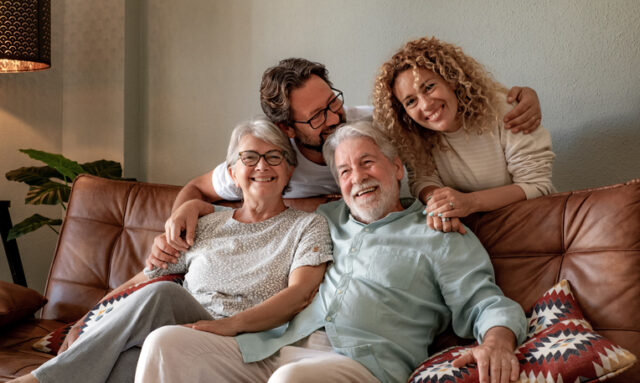
If you catch yourself texting your mum to grab lunch or calling your dad just to chat—not because it’s a holiday or someone’s birthday, but because you genuinely want to spend time together—that’s a good sign. It means being around them feels like a choice, not an obligation.
When you stop counting the minutes or looking for a reason to leave early, that’s when the relationship shifts. It’s no longer about ticking boxes—it’s about connection, and honestly, that’s what friendship is at its core.
2. You tell them stuff you don’t really have to share.

You’re not just updating them on your job or letting them know you got home safely. You actually open up about what’s bothering you, what you’re excited about, or what’s been playing on your mind. It not because you feel like you have to, but because it just feels natural, and you actually want to.
When you find yourself saying, “You’re the first person I told,” or calling them just to vent, that’s more than a parent-child dynamic. That’s friendship-level trust and comfort showing up without you even realising it.
3. You can joke around without it turning awkward.
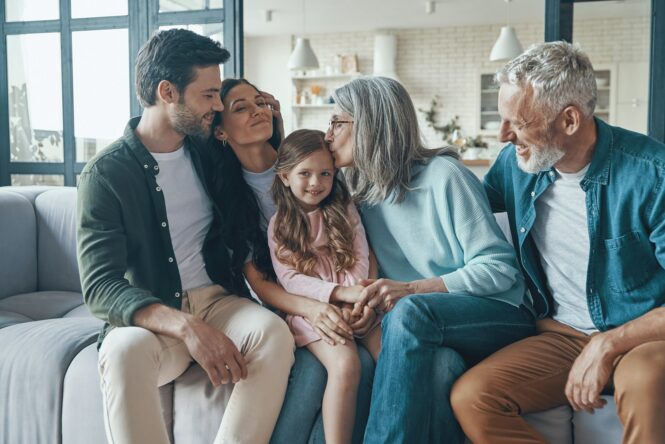
You know those inside jokes, teasing comments, or light roasting sessions that feel easy and fun? If you can laugh with your parent—like really laugh, not just polite chuckles at the dinner table—you’ve crossed into friend territory.
Humour builds connection, and when it flows naturally between you, it means you’re seeing each other as people, not just roles. If you’ve ever looked at your mum and thought, “You’re actually kind of funny,” welcome to the friend zone.
4. You ask for their opinion because you value it, not because you’re supposed to.
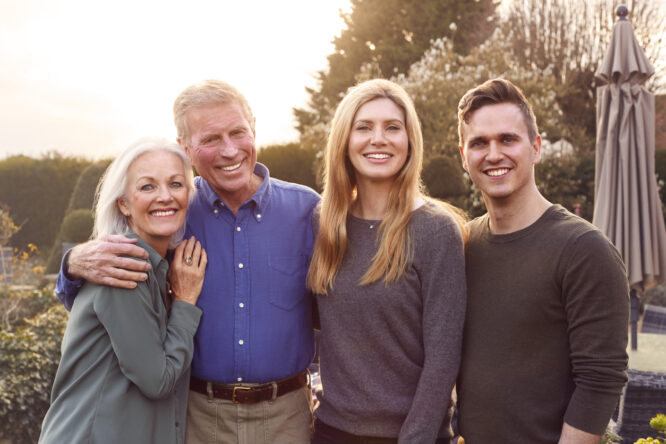
It’s one thing to ask for advice because you think you should. It’s another to genuinely care what they think. If you bounce ideas off them or ask for their thoughts on big decisions—not out of duty, but because you trust their perspective—that’s a move from parent to peer. It shows that you respect their insight as more than just your mum or dad. They’ve become someone whose opinion matters to you in a deeper, more personal way.
5. You’re able to admit when they’re right without rolling your eyes.

Let’s be honest, most of us go through a phase where our parents could say the sky is blue, and we’d still want to argue. However, at some point, if you find yourself thinking, “Yeah… they nailed that,” and you’re okay admitting it, that’s a big change.
Friends can call you out and still be close. So when you’re able to acknowledge their advice without feeling defensive or patronised, it means the dynamic’s got healthier—and more grown-up, in the best way.
6. They support your choices, even if they wouldn’t make the same ones.
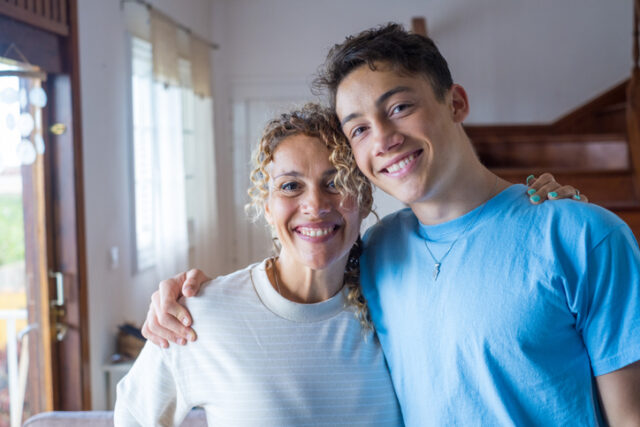
If your parents can step back, let you live your life, and cheer you on without trying to micromanage, that’s real maturity. If you can do the same for them—respecting their quirks, letting them change, seeing them as more than just Mum or Dad—that’s a sign you’re meeting as equals.
It doesn’t mean they agree with everything, but they don’t need to. The fact that they’ve got your back regardless is what makes the relationship feel safe, and more like something built on mutual care, not just tradition.
7. You can call each other out kindly.

You don’t walk on eggshells. If your parent says something off, you can say, “Hey, that didn’t sit right,” and know they won’t spiral. And if you mess up, they can call you out, too—without making it a full-blown guilt trip. That kind of honesty doesn’t usually exist in relationships that are purely based on roles. It shows you trust each other enough to be real, and that you’ve built something more grounded than just politeness or avoidance.
8. You share stuff you both enjoy just because it’s fun.

Maybe you both love the same TV show, or you always end up people-watching together and cracking jokes. If you find shared joy in small, everyday things, it’s not just a family bond—it’s something you’d probably still enjoy even if you weren’t related.
That kind of effortless connection means you’re not just “getting through” family time—you’re actually having a good time. And that’s a pretty solid sign of friendship peeking through.
9. You can talk about your past without tension.

When you’re able to look back at certain family memories, good or bad, and talk about them honestly, it shows the relationship has matured. You’re not stuck in old roles or pretending things were perfect. You’re able to reflect together, maybe even laugh at stuff that once felt impossible to discuss.
That shared reflection, without defensiveness or blame, is a huge step. It means you’re both in a space where honesty is welcome, and the past doesn’t control the present. That’s what real friendship looks like, especially within families.
10. You enjoy who they are now—not just who they were

It’s easy to see parents as a fixed version of who they were when you were growing up. However, friendship happens when you start to notice them as full people now—with new interests, evolving opinions, and maybe even surprising takes on life.
When you’re curious about what’s going on in their world—what they’re reading, watching, or thinking about—it shows that you value them as a person, not just a parent. That mutual curiosity is a real marker of friendship.
11. You’re okay disagreeing without it becoming a big thing.

Friends don’t always agree, and if you can disagree with your parent on anything from politics to how you load the dishwasher without it blowing up into silence or guilt trips, that’s progress. It shows emotional flexibility and respect. When disagreements don’t feel like personal attacks, it means the relationship is built on more than just tiptoeing. You trust the connection enough to be real, and you know it won’t fall apart over one different opinion.
12. They root for your happiness, not just your safety.
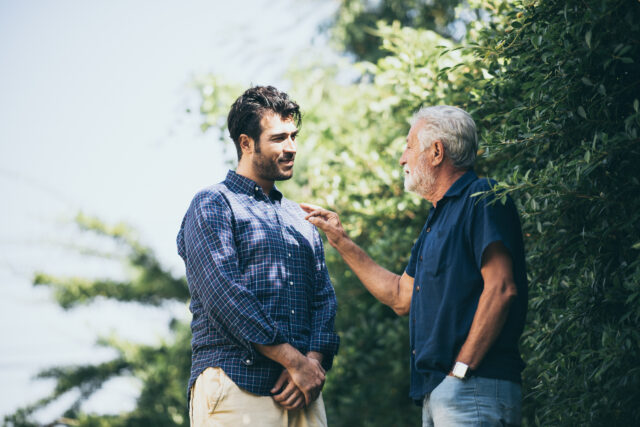
Parents are wired to protect. But when that shifts into cheering you on, even when your choices scare them a little, it shows real growth. If they care more about you being fulfilled than just being comfortable, that’s friendship-level support.
If you’re doing the same for them—encouraging their hobbies, letting them explore life outside the “parent” label—that mutual encouragement becomes something a lot deeper than just family duty. It’s real care, from both sides.
13. You feel like you can truly be yourself around them.
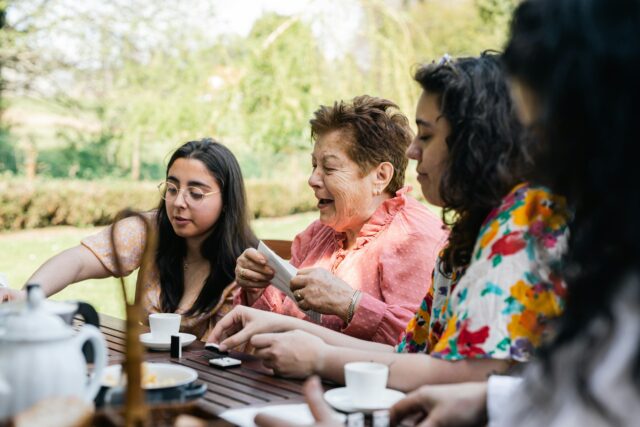 Source: Unsplash
Source: Unsplash No pretending. No editing yourself. If you can speak freely, laugh loudly, show up messy or unsure—and they accept you fully—that’s something a lot of people never get from family. When it happens, it’s pretty special.
Feeling safe to be fully yourself, without trying to live up to an expectation, means you’re building something beyond the standard parent-child relationship. You’re building trust, comfort, and something that looks a whole lot like friendship.




